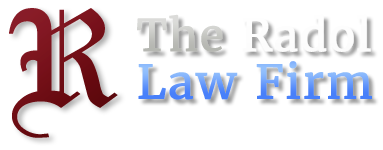Bergen County Consumer Bankruptcy Attorney
Chapter 7 Bankruptcy vs. Chapter 13 Bankruptcy
If debt seems to be spiraling out of control, you can’t keep up with your bills each month, or your creditors are hounding you, bankruptcy may be the solution. Bankruptcy can stop those annoying calls from creditors and restore your peace of mind and that of your family. Once you file for bankruptcy, the “automatic stay” will be forced to stop their pursuit of your debt and protect you from harassment, foreclosure, repossession of vehicles, and more. As a consumer, you will need to choose between two different options: Chapter 7 bankruptcy or Chapter 13 bankruptcy. To discuss your legal options further, contact The Radol Law Firm for a consultation.
Chapter 7 Bankruptcy Basics
Chapter 7 bankruptcy is called a “liquidation bankruptcy” because some of your assets may be sold to pay off your creditors. However, you will get to keep any property that is considered exempt. Exempt property usually includes vehicles, clothing, household appliances and furnishings, tools and equipment necessary for you to earn a living.
At the end of your Chapter 7 bankruptcy, your unsecured debts, like credit card debt and medical bills, will be eliminated. It is important to note that there are many debts that cannot be dismissed through Chapter 7, including student loans, child support, and most tax debts.
To be eligible for Chapter 7 bankruptcy, you must satisfy a requirement known as the “means test.” The test determines whether you have income over and above an amount established by the bankruptcy court. Amounts above that figure are used to pay creditors. Individuals and households that exceed the means test will need to file for Chapter 13 or Chapter 11 bankruptcy. You must also demonstrate that you have engaged in credit counseling within 180 days before the filing by filing a credit counseling certificate.
Chapter 13 Bankruptcy Basics
Chapter 13 bankruptcy is known as “reorganization bankruptcy.” In Chapter 13 bankruptcy, you will be able to keep all your property but you must repay a portion of your debts over a three to five year period. Once you have completed your repayment plan, unsecured debt is forgiven.
Chapter 13 bankruptcy may provide a way for you to catch up on your mortgage payments and avoid foreclosure on your home. Under certain circumstances, you may even be able to modify your mortgage payments or eliminate second mortgages and home equity loans. To qualify for Chapter 13, you must have regular and reliable income.
Contact a Bergen County Personal Bankruptcy Lawyer
At The Radol Law Firm, we assist individuals in filing for both Chapter 7 and Chapter 13 bankruptcy. We will carefully review your circumstances and help you make informed decisions. The Radol Law Firm has over 30 years of legal experience supporting individuals and families through the process of bankruptcy. If you need quality legal support, contact The Radol Law Firm for an initial consultation.
